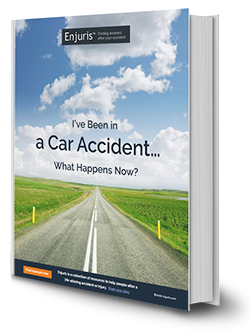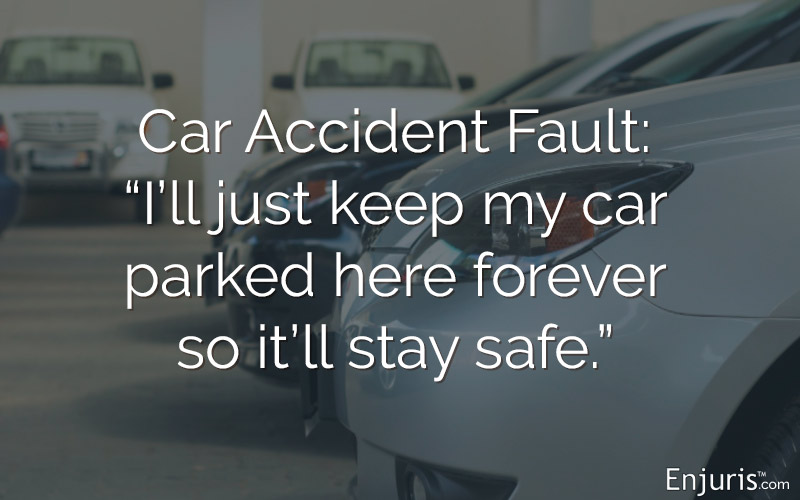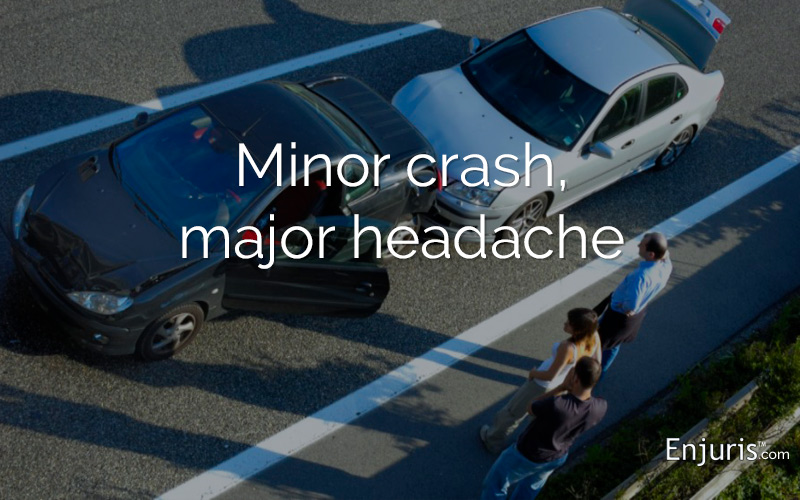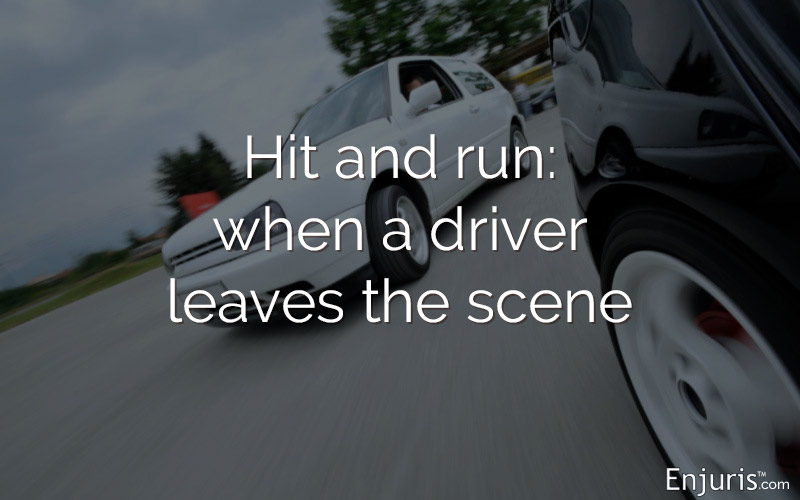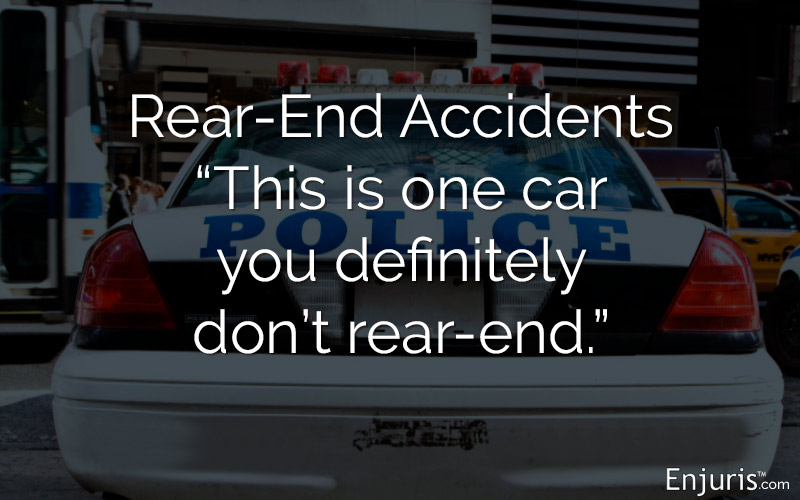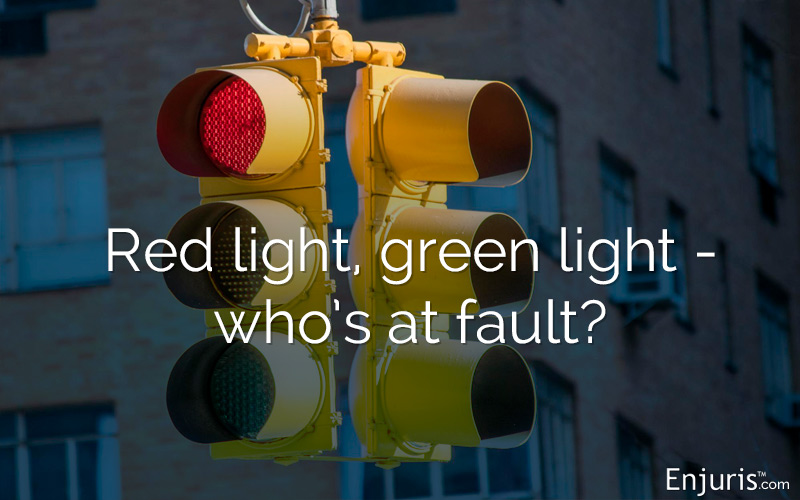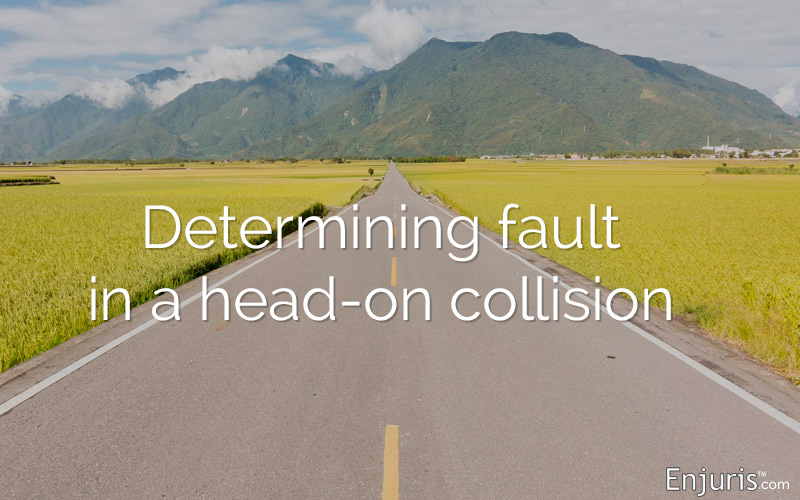Learn the rules of the road and find out how to establish fault after a car crash in Washington state
You can't control everything that happens on the road.
But the choices you make after a car accident might mean the difference between receiving compensation for your injuries and being stuck footing the bill.
In this guide, we'll take a look at Washington car accidents, including the rules of the road you should know and the steps you can take after an accident to increase your chances of recovery.
Washington car accident statistics
Washington is considered one of the safest places to drive in the United States. In 2019, there were 0.83 deaths per 100 million vehicle miles, making Washington the 7th safest state for drivers.
Of course, serious car accidents still happen more frequently than Washingtonians would like.
| Washington car crash statistics (2015–2020) | ||||
|---|---|---|---|---|
| Year | Total crashes | Fatal | Serious injury | Minor injury |
| 2015 | 117,078 | 498 | 1,768 | 8,976 |
| 2016 | 122,396 | 513 | 1,898 | 8,575 |
| 2017 | 121,144 | 534 | 1,923 | 8,189 |
| 2018 | 116,073 | 493 | 1,939 | 7,772 |
| 2019 | 111,655 | 517 | 1,934 | 7,374 |
| 2020 | 86,120 | 523 | 2,096 | 8,128 |
Laws impacting Washington drivers
Most laws impacting Washington drivers can be found in Title 46 of the Revised Code of Washington. These laws cover everything from vehicle registration to when a driver must stop at a crosswalk.
When it comes to Washington car accident claims, there are 3 important laws you should keep in mind:
- Duty of care. Washington requires all motor vehicle drivers to exercise reasonable care to avoid harming others on the road. To put it another way, the law requires that you operate your vehicle as a reasonable person would.
- At-fault state. Washington is an "at-fault" state, which means the driver who caused an accident is responsible for the resulting damages. In "no-fault" states, each driver files a claim with their own insurance company, regardless of who's at fault for the accident.
- Washington comparative negligence. Washington is a pure comparative fault state. This means that each driver is assigned a percentage of liability in an accident. A plaintiff's damages are then reduced by their percentage of fault (if any).
Washington auto insurance requirements
The Revised Code of Washington § 46.30 requires anyone who drives a motor vehicle or motorcycle in Washington to carry liability insurance with the following minimums:
- $25,000 for injuries or death to another person
- $50,000 for injuries or death to all other people
- $10,000 for damage to another person's property
This insurance coverage is commonly referred to as "25/50/10 coverage" and it's the easiest way for most drivers to comply with the law. There is, however, an alternative that involves depositing a large amount of money with the state in case of an accident. Drivers who prefer to go this route can:
- Apply for a certificate of deposit with the Washington Department of Licensing, and
- Have a liability bond of at least $60,000 filed by a surety bond company authorized to do business in Washington.
Washington requires drivers to provide proof of insurance upon request from a law enforcement officer. Drivers who do not have insurance are subject to a fine of up to $550. What's more, an uninsured driver may have their license suspended.
Post-accident requirements in Washington
Following a car accident in Washington, state law requires that you take the following 3 steps:
- Stop your vehicle at the scene of the accident (or as close to the scene as possible),
- Provide your name, address, insurance company, insurance policy number, and vehicle license number to any person involved in the crash, and
- Render reasonable assistance to anyone injured.
If you collide with an unoccupied vehicle, you must:
- Stop your vehicle at the scene of the accident, and
- Locate the owner of the vehicle or leave a written note providing your name and contact information.
Proving fault after a Washington car accident
To receive compensation after a car accident in Washington, you generally have to prove that someone else was at fault (i.e., liable) for the crash and your resulting damages or injuries.
In most accidents, proving fault means establishing that some other driver was negligent. To prove that a motor vehicle driver was negligent in Washington, you must show that:
- The driver owed you a duty. All drivers have a duty to exercise reasonable care to avoid harming others on the road.
- The driver breached their duty. To prove that a driver breached their duty, you will have to show that the driver failed to exercise a reasonable degree of care. For example, the driver ran a red light or was texting while driving.
- You were injured as a result of the driver's breach. It's not enough that the driver failed to exercise reasonable care, you must prove that their failure caused your accident.
Of course, not all car accidents are caused by other drivers. Other potentially liable parties include:
- Property owners. Premises liability laws in Washington require property owners to maintain their property free from dangerous conditions. This includes public and private roads. If you're injured as a result of a dangerous condition (such as a large pothole or an obscured stop sign), the owner of the property can be held liable.
- Manufacturers. If your car accident was caused by a defective component (such as a faulty brake system), the manufacturer can be held liable.
Damages available in a Washington car accident
Washington allows car accident victims to recover the following damages:
- Economic damages represent the monetary losses caused by your accident (e.g., medical expenses, lost wages, property damage).
- Non-economic damages represent the non-monetary losses caused by your accident (e.g., pain and suffering, loss of consortium).
How long do I have to file a lawsuit?
In Washington, you have 3 years from the date of the car accident to file a personal injury lawsuit. This is referred to as the statute of limitations. If you fail to file your lawsuit within the statute of limitations, you will be permanently barred from receiving compensation for your injuries.
When to talk to a Washington car accident lawyer
If you suffered minor injuries or minor property damage, you may be able to file an insurance claim and receive the compensation you deserve without involving a lawyer. However, if any of the following are true, we strongly recommend consulting with an experienced attorney near you:
- You suffered serious physical injuries or property loss
- The other driver was uninsured
- The insurance company denies your claim or offers less than you deserve
- The car accident was a multi-vehicle accident
- What to Do after a Washington Car Accident
- Guide to Bicycle Accidents in Washington
- How to Handle a Train Accident Claim in Washington
- Washington Aviation Accidents, Plane Crashes & Personal Injury Lawsuits
- Washington Boat Laws & Personal Injury Claims
- Washington Bus Accident Injury Claims
- Washington Car Insurance Laws & Requirements
- Washington Distracted Driving Accidents & Cell Phone Laws
- Washington DUI Laws, Penalties & Drunk Driving Injury Lawsuits
- Washington Hit-and-Run Laws & Penalties
- Washington Pedestrian Accidents & Personal Injury Claims
Did you know that car accident law varies by state?
Hurt in a car crash? You may find these resources helpful
Need a lawyer?
What does an injury lawyer do?
A personal injury lawyer helps individuals who have sustained injuries in accidents to recover financial compensation. These funds are often needed to pay for medical treatment, make up for lost wages and provide compensation for injuries suffered. Sometimes a case that seems simple at first may become more complicated. In these cases, consider hiring an experienced personal injury lawyer. Read more
Common car accidents
